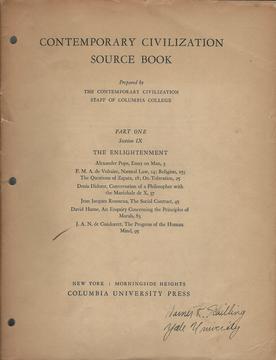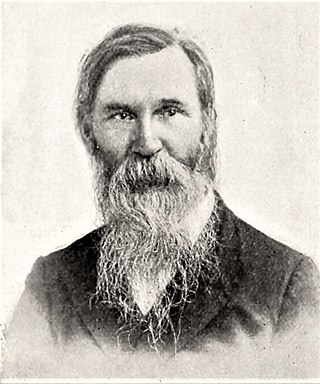Related Research Articles

Humanities are academic disciplines that study aspects of human society and culture. In the Renaissance, the term contrasted with divinity and referred to what is now called classics, the main area of secular study in universities at the time. Today, the humanities are more frequently defined as any fields of study outside of natural sciences, social sciences, formal sciences, and applied sciences. They use methods that are primarily critical, or speculative, and have a significant historical element—as distinguished from the mainly empirical approaches of the natural sciences.

An academy is an institution of secondary or tertiary higher learning. The name traces back to Plato's school of philosophy, founded approximately 386 BC at Akademia, a sanctuary of Athena, the goddess of wisdom and skill, north of Athens, Greece.
Islamic studies refers to the academic study of Islam, and generally to academic multidisciplinary "studies" programs—programs similar to others that focus on the history, texts and theologies of other religious traditions, such as Eastern Christian Studies or Jewish Studies but also fields such as —where scholars from diverse disciplines participate and exchange ideas pertaining to the particular field of study.
Sinology, otherwise referred to as Chinese studies, is a sub-field of area studies or East Asian studies involved in social sciences and humanities research on China. It is an academic discipline that focuses on the study of the Chinese civilization primarily through Chinese language, history, culture, literature, philosophy, art, music, cinema, and science. Its origin "may be traced to the examination which Chinese scholars made of their own civilization."
An academic department is a division of a university or school faculty devoted to a particular academic discipline. This article covers United States usage at the university level. In the United Kingdom and other Commonwealth countries, universities tend to use the term faculty; faculties are typically further divided into schools or departments, but not always.
American studies or American civilization is an interdisciplinary field of scholarship that examines American literature, history, society, and culture. It traditionally incorporates literary criticism, historiography and critical theory.
An academic major is the academic discipline to which an undergraduate student formally commits. A student who successfully completes all courses required for the major qualifies for an undergraduate degree. The word major is also sometimes used administratively to refer to the academic discipline pursued by a graduate student or postgraduate student in a master's or doctoral program.
Norman Frank Cantor was a Canadian-American historian who specialized in the medieval period. Known for his accessible writing and engaging narrative style, Cantor's books were among the most widely read treatments of medieval history in English. He estimated that his textbook The Civilization of the Middle Ages, first published in 1963, had a million copies in circulation.

The Core Curriculum was originally developed as the main curriculum used by Columbia College of Columbia University in 1919. Created in the wake of World War I, it became the framework for many similar educational models throughout the United States, and has played an influential role in the incorporation of the concept of Western civilization into the American college curriculum. Today, customized versions of the Core Curriculum are also completed by students in the School of Engineering and Applied Science and the School of General Studies, the other two undergraduate colleges of Columbia University.
Jewish studies is an academic discipline centered on the study of Jews and Judaism. Jewish studies is interdisciplinary and combines aspects of history, Middle Eastern studies, Asian studies, Oriental studies, religious studies, archeology, sociology, languages, political science, area studies, women's studies, and ethnic studies. Jewish studies as a distinct field is mainly present at colleges and universities in North America.
Ethnic studies, in the United States, is the interdisciplinary study of difference—chiefly race, ethnicity, and nation, but also sexuality, gender, and other such markings—and power, as expressed by the state, by civil society, and by individuals. "The unhyphenated-American phenomenon tends to have colonial characteristics," notes Jeffrey Herlihy-Mera in After American Studies: Rethinking the Legacies of Transnational Exceptionalism: "English-language texts and their authors are promoted as representative; a piece of cultural material may be understood as unhyphenated—and thus archetypal—only when authors meet certain demographic criteria; any deviation from these demographic or cultural prescriptions are subordinated to hyphenated status." As opposed to International studies, which was originally created to focus on the relations between the United States and Third World Countries, Ethnic studies was created to challenge the already existing curriculum and focus on the history of people of different minority ethnicity in the United States. Ethnic studies is an academic field that spans the humanities and the social sciences; it emerged as an academic field in the second half of the 20th century partly in response to charges that traditional social science and humanities disciplines such as anthropology, history, literature, sociology, political science, cultural studies, and area studies were conceived from an inherently Eurocentric perspective. Its origin comes before the civil rights era, as early as the 1900s. During this time, educator and historian W. E. B. Du Bois expressed the need for teaching black history. However, Ethnic Studies became widely known as a secondary issue that arose after the civil rights era. Ethnic studies was originally conceived to re-frame the way that specific disciplines had told the stories, histories, struggles and triumphs of people of color on what was seen to be their own terms. In recent years, it has broadened its focus to include questions of representation, racialization, racial formation theory, and more determinedly interdisciplinary topics and approaches.

Dr. Francis Andrew March was an American polymath, academic, philologist, and lexicographer. He is considered the principal founder of modern comparative linguistics in Old English.
Latino studies is an academic discipline which studies the experience of people of Latin American ancestry in the United States. Closely related to other ethnic studies disciplines such as African-American studies, Asian American studies, and Native American studies, Latino studies critically examines the history, culture, politics, issues, sociology, spirituality (Indigenous) and experiences of Latino people. Drawing from numerous disciplines such as sociology, history, literature, political science, religious studies and gender studies, Latino studies scholars consider a variety of perspectives and employ diverse analytical tools in their work.
The Association for Asian Studies (AAS) is a scholarly, non-political and non-profit professional association focusing on Asia and the study of Asia. It is based in Ann Arbor, Michigan, United States.
East Asian studies is a distinct multidisciplinary field of scholarly enquiry and education that promotes a broad humanistic understanding of East Asia past and present. The field includes the study of the region's culture, written language, history and political institutions. East Asian Studies is located within the broader field of Asian studies and is also interdisciplinary in character, incorporating elements of the social sciences and humanities, among others. The field encourages scholars from diverse disciplines to exchanges ideas on scholarship as it relates to the East Asian experience and the experience of East Asia in the world. In addition, the field encourages scholars to educate others to have a deeper understanding of and appreciation and respect for, all that is East Asia and, therefore, to promote peaceful human integration worldwide.

Chicano/a studies, also known as Chican@ studies, originates from the Chicano Movement of the late 1960s and 1970s, and is the study of the Chicana/o and Latina/o experience. Chican@ studies draws upon a variety of fields, including history, sociology, the arts, and Chican@ literature. The area of studies additionally emphasizes the importance of Chican@ educational materials taught by Chican@ educators for Chican@ students.
American studies as an academic discipline is taught at some British universities and incorporated in several school subjects, such as history, politics, and literature. While the United States of America is the focus of most study, American Studies can also include the study of all the Americas, including South America and Canada. The methods of study are interdisciplinary, and students and researchers come from many fields, including anthropology, cultural studies, history, literature, film studies, gender studies and economics. Because of Britain's long association with the Americas, there is also a history of comment and analysis of the geography, culture and peoples of America, from Sir Walter Raleigh and Charles Dickens to Rudyard Kipling and Alistair Cooke.
The University Press of New England (UPNE), located in Lebanon, New Hampshire and founded in 1970, was a university press consortium including Brandeis University, Dartmouth College, Tufts University, the University of New Hampshire, and Northeastern University. It shut in 2018 and in January 2021, Brandeis University became the sole owner of all titles and copyrights of UPNE, excluding Dartmouth College Press titles.
Hartmut Lutz is professor emeritus and former chair of American and Canadian studies: Anglophone literatures and cultures of North America at the University of Greifswald, Germany. He is the founder of the Institut für Anglistik und Amerikanistik, a research centre for Canadian and American literature studies at Greifswald. Beginning in the 1980s, he pioneered the field of Indigenous literary studies by establishing intercultural bridges and trans-Atlantic connections with leading Indigenous authors, scholars, educators, activists and intellectuals from Canada and the United States. He initiated studies on "Indian" stereotyping and coined the term "Indianthusiasm" to describe the fascination Germans have with all things "Indian". Throughout his career, Lutz put in practice the "nothing about us without us" principle set forth by Indigenous people and devoted himself to asking for their thoughts and to collaborating on bringing their words to a wide public in North America and Europe.
English studies is an academic discipline taught in primary, secondary, and post-secondary education in English-speaking countries; it is not to be confused with English taught as a foreign language, which is a distinct discipline. An expert on English studies can be called an Anglicist. The discipline involves the study and exploration of texts created in English literature. English studies include: the study of literature, the majority of which comes from Britain, the United States, and Ireland ; English composition, including writing essays, short stories, and poetry; English language arts, including the study of grammar, usage, and style; and English sociolinguistics, including discourse analysis of written and spoken texts in the English language, the history of the English language, English language learning and teaching, and the study of World of English. English linguistics is usually treated as a distinct discipline, taught in a department of linguistics.
References
- ↑ Shumway, David (1994). Creating American Civilization: A Genealogy of American Literature as an Academic Discipline. University of Minnesota Press. pp. 14–15. ISBN 0816621888.
- ↑ Hall, H. Lark (2011). V. L. Parrington: Through the Avenue of Art. Transaction. p. 135. ISBN 1412842182.
- 1 2 3 Renker, Elizabeth (2007). The Origins of American Literature Studies: An Institutional History. Cambridge University Press. ISBN 0521883458.
- ↑ Spengemann, William. "The Study of American Literature: A View from the Hill". dartmouth.edu. Dartmouth College. Retrieved 26 December 2015.
- ↑ "American Literature". dukeupress. Duke University Press. Retrieved 26 December 2015.
- ↑ "About". American Literature Association. Retrieved 17 January 2014.